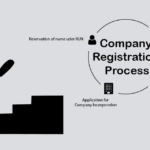In today’s digital landscape, where competition is fierce and consumers are inundated with information, building brand authority has become paramount for businesses striving to stand out. Amidst this challenging terrain, content marketing emerges as a powerful tool, offering a strategic approach to establishing and reinforcing brand authority. Let’s delve into the significance of content marketing in this endeavor and explore how it contributes to shaping a brand’s reputation and credibility.
Content marketing serves as the cornerstone of brand authority by enabling businesses to showcase their expertise, knowledge, and unique perspectives within their respective industries. Through high-quality, relevant content, brands can demonstrate their understanding of market trends, address customer pain points, and offer valuable insights that resonate with their target audience. Whether through blog posts, videos, podcasts, or social media content, each piece serves as an opportunity to establish authority and foster trust with consumers.
One of the primary ways content marketing contributes to building brand authority is by positioning businesses as thought leaders in their fields. By consistently delivering valuable and insightful content, companies can establish themselves as go-to resources for industry-related information. This positioning not only enhances brand visibility but also fosters a sense of credibility and trust among consumers. Over time, as audiences come to rely on a brand’s content for valuable insights and guidance, its authority within the industry grows exponentially.
Moreover, content marketing plays a crucial role in shaping consumer perceptions and fostering brand loyalty. By consistently delivering content that resonates with their target audience, brands can cultivate a sense of affinity and connection with consumers. Whether through entertaining storytelling, educational resources, or thought-provoking thought leadership pieces, content marketing allows brands to engage with their audience on a deeper level, forging meaningful relationships that extend beyond mere transactions.
In addition to bolstering brand authority externally, content marketing also contributes to internal brand alignment and cohesion. By articulating key brand messages, values, and narratives through content, businesses can ensure that their entire organization is aligned around a unified brand identity. This alignment not only enhances employee morale and satisfaction but also enables teams to deliver consistent and cohesive messaging across all touchpoints, further reinforcing brand authority and credibility.
Now, let’s address a common question among businesses seeking to gauge their brand’s performance: What is a good nps score? NPS is a metric used to measure customer loyalty and satisfaction based on the likelihood of customers recommending a brand to others. A good NPS score typically falls within the range of 50 to 70, indicating a high level of customer satisfaction and loyalty. However, it’s essential to note that NPS benchmarks can vary across industries, so it’s essential for businesses to compare their scores against industry standards and strive for continuous improvement.
In conclusion, content marketing plays a pivotal role in building brand authority by establishing thought leadership, fostering consumer trust and loyalty, and ensuring internal brand alignment. By consistently delivering valuable and relevant content, businesses can position themselves as trusted authorities within their respective industries, driving brand recognition, credibility, and ultimately, long-term success.



